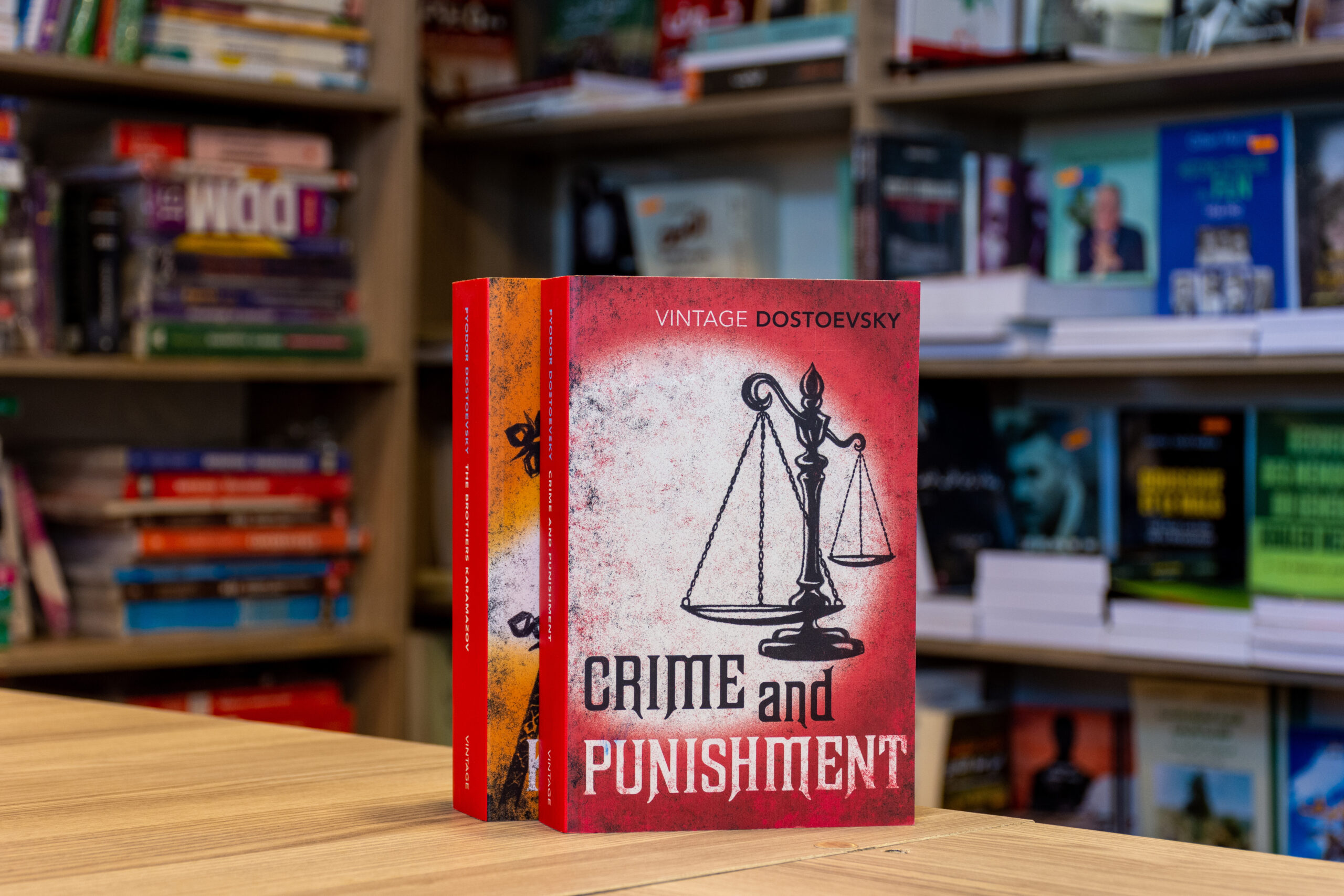
Why Read Crime and Punishment?
June 17, 2024 | Laura Matthews
Stone Hill Arts Book Club: Crime and Punishment | July 15 @ 6:30 p.m.
Discussion led by Dr. Laura Matthews, Lecturer in Slavic Languages and Literatures at Princeton University
Location: Stone Hill Church Ristuccia Library (1025 Bunn Dr. Princeton)
Free and open to the public
Registration Requested
Amazon Link for Book Purchase
Set in 1860s Saint Petersburg, Russia, Crime and Punishment follows the story of a young former student named Raskolnikov who, at the start of the novel, has cut himself off from community and his family, and feeling oppressed and stifled by his environment, hatches a plan to kill an old, miserly, and cruel pawnbroker known for taking advantage of her clients. Empowered by a sense of superiority and heightened intellect that he feels may give him the right to transgress the law, Raskolnikov meticulously makes and rehearses his plan.
Fyodor Dostoevsky’s 1866 masterpiece Crime and Punishment is a psychological thriller. It’s a detective novel, but unlike a traditional who-done-it where we’re trying to figure out who committed the crime and how they did it, we know who the criminal is – Raskolnikov – and see the crime taking place in Part One. The mystery of this novel is the mystery of Raskolnikov’s mind. Why did he ultimately commit the crime? And what will happen to him – emotionally, psychologically, morally, spiritually, socially, and legally– now that he’s committed it? Will he get away with it, or will he be punished? And if so, what type of punishment, and from whom will it come? Who is the arbiter of law and justice? Raskolnikov oversteps moral and legal boundaries when he transgresses the laws of both man and God. The question is whether he can ever come back from that. Can there be forgiveness for what he has done? Is there potential for change and resurrection, and if so, what is the source of that redemption? A major tension that Dostoevsky explores in this novel is that between justice and forgiveness. Are they mutually exclusive? Can there be space for repentance and forgiveness when the demands of justice call for accountability and punishment?
As we watch Raskolnikov’s plan and its aftermath unfold, we meet other notable characters including his sister Dounia, debating whether to marry a less-than-ideal suitor in order to financially provide for her brother and mother; Raskolnikov’s friend from university, Razumikhin, committed to taking care of him; the shrewd police investigator Porfiry Petrovich trying to solve the crime and catch Raskolnikov; a young woman named Sonia forced into prostitution by her family’s destitution, who offers Raskolnikov a glimpse of hope in a world of despair because of her faith in God; and a mysterious and shadowy visitor from out of town eavesdropping on Raskolnikov’s conversations. In the individual arcs of each of these and the many other fully fleshed out characters we meet in this novel, we see the same questions be debated: is there hope for redemption and renewal? Can there be restoration of severed family bonds? Is there justice on this earth, and if so, from whence does it come? What is my obligation to others, and who should be the first to receive my generosity and support? And can the ends ever justify the means? As Dostoevsky poses these questions, he explores the balance between head and heart, thinking and feeling, rationality and irrationality, reason and faith, free will and dependence on one another, and truth and proof.
Dostoevsky invites – or rather challenges – us as his readers to join in the questioning. At the end of the day, Dostoevsky’s novels don’t force you to believe any one given thing; more than telling you what to believe or dictating a singular answer, his novels push you to seriously consider the questions for yourself. To ask the hard questions. To examine your values and understanding of this world. To wrestle with what truly matters most to you in this life. And then to go a step beyond that and consider whether the life you live matches up with your beliefs and is an external representation of the values you cherish. Reading Dostoevsky has both strengthened my own faith immensely and challenged me to take tangible steps towards actively living out the values I claim to hold.
So, why read Crime and Punishment? Because I guarantee you that – if you give yourself the space emotionally to authentically engage with it – it will be a powerful and maybe even transformational experience for you. It truly is one of the greatest works of literature ever written, and it will transcend time, space, and culture to speak to you individually and your life today. Do you want to read a book that will move and challenge you? Do you want a plot that is thrilling and keeps you turning the pages? Do you want to read about characters that come to life? Do you want to be taken inside the minds of characters so you can feel with them every twist and turn of the plot, and feel so invested in them that you empathize with them even if you do not condone their actions? Do you want a work that shows the range of life as we know it – full of joy and pain, relationships severed and restored, despair and hope, and ultimately pointing to the power of faith and God’s grace? If so, I do hope you will join me in reading this masterpiece this summer, and I look forward to discussing it with you when we meet on July 15th!






